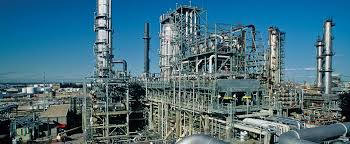
During the next five years, more expansion of refining capacity in the Middle East will continue to realign global petroleum product markets. According to ESAI Energy’s recently released Five-Year Global Fuels Outlook, increases in gasoline, diesel, jet fuel and fuel oil production in the region will alter trade patterns and keep global refining margins from mounting a significant recovery.
Yearly increases in Middle East refined product output are not new. In the period 2011-2015, combined output of the five main products (naphtha, gasoline, jet fuel, diesel and fuel oil) rose by an annual average 210,000 b/d. In 2016, we expect a 550,000 b/d increase, which is also noteworthy as it exceeds demand growth of just 180,000 b/d for those products. The transition of the Middle East refining region into a net exporter of petroleum products has been bearish for global refined product market fundamentals in recent years. It has been a major contributor to the fall in product market ‘dominoes’ that ESAI Energy has used to describe a succession of bearish turns in product price spreads to crude oil from LPG to diesel to gasoline.
The recent correction in gasoline spreads’assisted by increases in export volumes from India and China’is part of this phenomenon. ‘Oil majors have come under scrutiny for pushing refining units to offset profit losses from low energy prices,’ said Sarah Emerson, Managing Principal of ESAI Energy. ‘However, it may not be the major oil companies who are most influencing the market. In fact, careful analysis reveals that refining margins have fallen not so much because of steps taken by the oil majors, but rather by growing refinery output in the Middle East, India, China all of which have added to their own product supplies and in the process either need to import less from the global market or can now export more to the global market.
Through 2021, large refinery and condensate splitter projects should be completed in Iran, Iraq, Kuwait, Saudi Arabia and the U.A.E., while Oman and Qatar will also add capacity. In the period 2017-2021, ESAI Energy expects refining capacity expansions will lead Middle East production of the five main products to increase by about 355,000 b/d annually against average regional demand growth of just 195,000 b/d per year. The erasure of regional gasoline and fuel oil deficits will join jet fuel and diesel, the surpluses of which will expand precipitously, as the chart illustrates.
As a result, product exporters in Asia, Europe and North America will need to compete in new markets or against new players in traditional ones. That competition will continue to pressure refining margins and threaten operations at the least competitive refineries.
Source: ESAI Energy
























